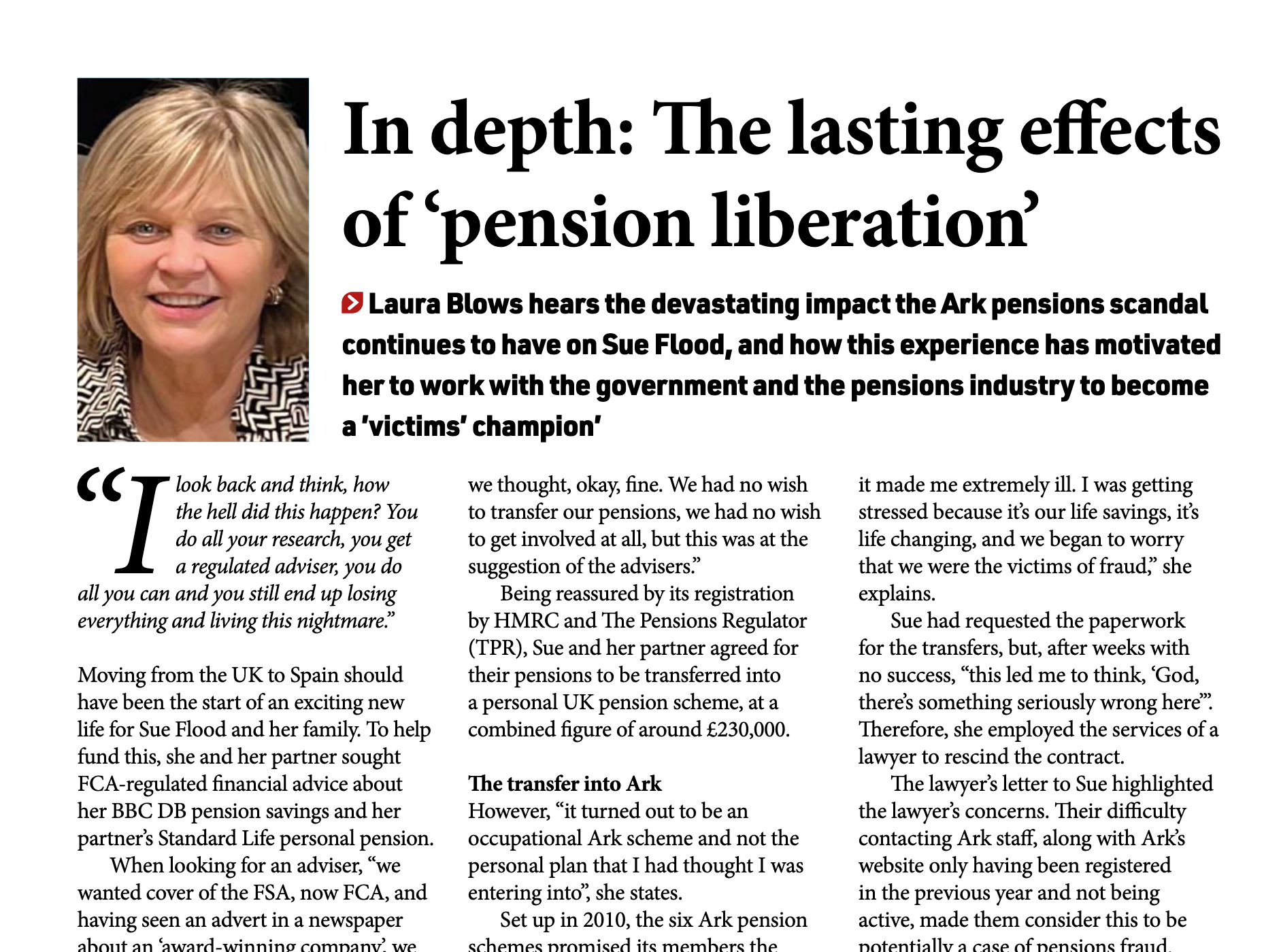A shocking case reveals how rigid tax rules are compounding the suffering of fraud victims — and why HMRC must be empowered to act with compassion and discretion.
The Guardian has reported that the widow of a Norton Motorcycles pension fraud victim faces losing almost half of her long-awaited compensation to taxation — because of a rule that penalises victims for delays they did not cause.
Susan Dewar’s late husband, Robert, was one of more than 200 savers who lost their pensions when funds were unlawfully invested in Norton Motorcycles businesses. More than a decade later, the Fraud Compensation Fund (FCF) finally paid out to victims.
But because the payment arrived over two years after Mr Dewar’s death, HMRC has ruled that nearly £50,000 of it is taxable — even though the delay was caused by lengthy investigations and administrative processes, not by the family.
This case highlights a fundamental unfairness: the current tax rules make no allowance for the realities of fraud compensation, leaving victims and their families penalised once again by the very systems meant to deliver justice.
The Unfairness at the Heart of the System
Under existing legislation, pension death benefits are only tax-free if paid within two years of the scheme becoming aware of the death. The rule was designed to prevent pension abuse — not to govern complex fraud compensation cases.
However, in fraud cases:
• Payments are often delayed by criminal investigations, regulatory inquiries, or administrative backlogs.
• Victims and their families have no control over when funds are released.
• The compensation schemes themselves are bound by legal processes that can take years.
Despite recognising that such delays are entirely beyond victims’ control, HMRC has confirmed that it currently has no discretion under the law to waive the resulting tax charge.
This means that, as in the Dewar case, victims can lose tens of thousands of pounds in tax simply because justice took too long. That is not fair, proportionate, or consistent with the principles of victim protection.
A Call for Common Sense and Compassion
The Investment Fraud Committee is calling for a new HMRC policy and using discretionary powers to deal fairly with fraud victims.
We are not seeking a wholesale change in the tax law, but a targeted administrative mechanism that allows HMRC to recognise exceptional cases where:
• Delays in payment result directly from official investigations, legal proceedings, or compensation fund processes;
• The recipient is demonstrably a victim of fraud, not a beneficiary of a pension planning choice.
We believe HMRC should be both empowered and directed to waive or adjust tax liabilities in such cases, ensuring that compensation is treated as restitution — not taxable income.
This would not create loopholes or exemptions for ordinary pension arrangements.
It would simply allow HMRC to act fairly and compassionately when victims of crime are caught in the crossfire of bureaucracy.
Why Reform Is Needed
• Fraud Victims Deserve Fair Treatment
The tax system should support, not penalise, those already harmed by financial crime.
• Compensation payments are not windfalls — they are partial restitution for stolen savings.
• Delays Are Beyond Victims’ Control
Fraud cases often take years to resolve. Victims cannot influence investigation timelines, FCF processes, or court proceedings. Yet they bear the tax consequences.
A Small Policy Change Would Make a Big Difference
Directing HMRC to use its discretion in these cases would require minimal legislative or administrative change but could prevent severe financial harm and injustice to innocent families.
Consistency with Broader Public Policy
Government agencies are rightly urged to take a “victim-centred” approach. The tax system should do the same.
Our message is clear:
Fraud victims should not lose part of their compensation because the system that failed to protect them took too long to respond.
A Matter of Fairness, Not Favouritism
This proposal is not about special treatment — it is about fairness.
It ensures that tax policy recognises context and compassion where injustice has already been done.
Allowing HMRC to apply discretion in exceptional fraud cases would:
• Protect victims’ rights;
• Strengthen public trust in the fairness of the system; and
• Align taxation with the broader principles of justice and victim protection that underpin public policy.
Conclusion
The Norton Motorcycles pension scandal already destroyed lives and savings. The idea that its victims — or their families — should lose half their compensation to an inflexible tax rule is deeply wrong.
The Guardian’s reporting has brought this issue to national attention. Now, it is time for government to act.
The Investment Fraud Committee is urging HM Treasury and HMRC to implement a new, compassionate policy that allows discretion where delays in compensation arise from official investigations or administrative processes and treats all fraud victims fairly and proportionately.
Fraud victims should not pay twice — once to the fraudsters, and again to the taxman.
Further Reading
“Norton Motorcycles pension scandal: victim’s widow to lose almost half of payout to tax rule” — The Guardian, 11 October 2025


